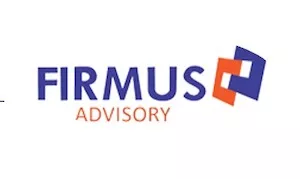- with readers working within the Law Firm industries
- within Corporate/Commercial Law, Immigration and Tax topic(s)
A Technology Transfer Agreement (TTA) is a legally binding contract between a Ghanaian company (Transferee) and a foreign entity (Transferor) lasting for not less than eighteen (18) months which involves:
- The transfer, sale, or licensing of industrial property (except trademarks, unless they are part of the technology being transferred).
- The provision of technical expertise, including feasibility studies, designs, training, and advisory services.
- The provision of technological knowledge needed to install, operate, and manage equipment, plants, and turnkey projects; and
- The provision of technological knowledge on using machinery, raw materials, or intermediate goods obtained through purchase, lease, or other means.
TTAs do not cover the sale of goods; instead, they focus on services that enhance industrial and commercial capabilities.
Legal Framework Governing TTAs in Ghana
TTAs in Ghana are primarily regulated by:
- Ghana Investment Promotion Centre (GIPC) Act, 2013 (Act 865) – This mandates the registration of TTAs with the GIPC.
- Technology Transfer Regulations, 1992 (L.I. 1547) – This regulates the registration of TTAs.
According to Section 37 of the GIPC Act, every TTA must be registered with the GIPC. The GIPC is responsible for:
- Reviewing submitted TTAs.
- Registering TTAs
- Monitoring and ensuring compliance with the terms and conditions of TTAs.
Some Mandatory Requirements for TTA Registration
For a TTA to be registered and enforceable, it must meet certain specific requirements. These include:
- Services provided must not be readily available in Ghana.
- The governing law must be the laws of Ghana.
- Training of local personnel is mandatory.
- Taxes on royalties are to be paid by the Transferor (foreign company).
- Fees payable are subject to thresholds set by the GIPC.
- TTAs cannot include certain unfair restrictions such as:
- Requiring the local company to buy all inputs exclusively from the foreign transferor.
- Imposing unnecessary royalty payments after industrial property rights expiration, termination or invalidation.
- Prohibiting the local company from improving or modifying the technology.
- The duration of the TTA should not be more than ten (10) years. If both parties agree, it can be renewed, but each renewal cannot exceed five (5) years.
- The TTA is effective on the date it is registered by the GIPC.
Threshold of Fees Payable Under a TTA
Fees payable by the Ghanaian company to the foreign Transferor are capped as follows:
| Service Type | Allowable Charge |
|---|---|
| Industrial Property Rights | 0-6% of Net Sales |
| Technical Services | 0-5% of Net Sales |
| Technical Services (only) | 0-3% of Net Sales |
| Know-How | 0-2% of Net Sales |
| Management Services | 0-2% of Profit Before Tax |
If a company requires approval for fees exceeding these limits, an application must be made to the GIPC for special consideration.
To view the article in full click here
The content of this article is intended to provide a general guide to the subject matter. Specialist advice should be sought about your specific circumstances.


